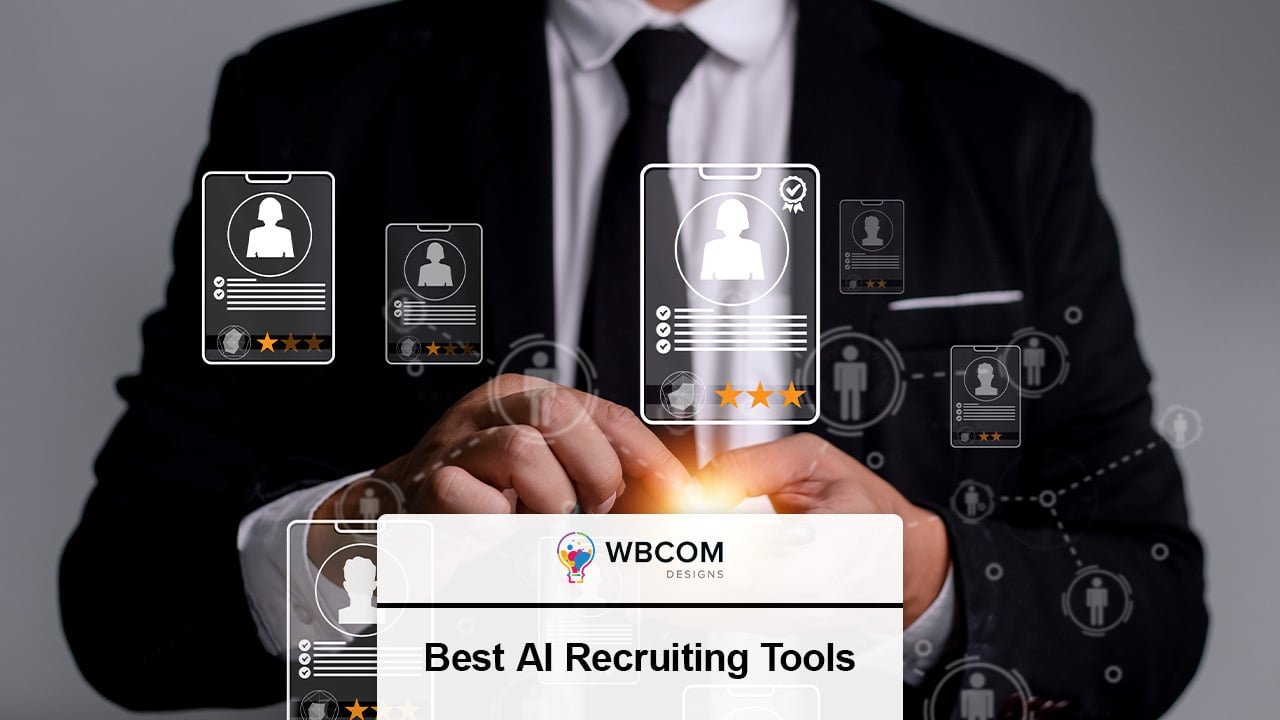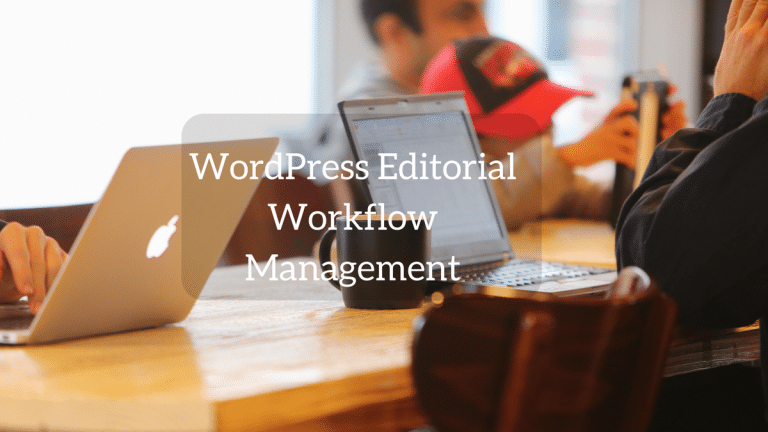In today’s competitive job market, finding and attracting the right talent is crucial for the success of any organization. However, traditional recruitment processes can be time-consuming, labor-intensive, and prone to human biases. This is where Artificial Intelligence (AI) recruiting tools come into play.
AI recruiting tools leverage advanced algorithms and machine learning to streamline and optimize various aspects of the hiring process. These tools offer a range of functionalities, from automated candidate sourcing and screening to predictive analytics and intelligent decision-making. By harnessing the power of AI, recruiters and hiring managers can significantly enhance their efficiency, improve the quality of hires, and make data-driven recruitment decisions.
In this blog, we will explore the top ten “Best” AI recruiting tools. These tools have gained popularity for their innovative features, effectiveness, and positive impact on the recruitment process. We will delve into the unique capabilities of each tool, their key benefits, and how they can revolutionize the way organizations attract, assess, and select candidates.
Table of Contents
ToggleBenefits Of AI Recruiting Tools
- Improved Efficiency: AI recruiting tools automate time-consuming and repetitive tasks, such as resume screening and candidate sourcing. This significantly reduces the manual effort required from recruiters and allows them to focus on more strategic and high-value activities.
- Enhanced Candidate Matching: AI tools leverage algorithms to analyze job requirements and match them with candidate profiles. This improves the accuracy of candidate selection, leading to higher-quality hires and reduced time-to-fill positions.
- Bias Reduction: Human biases can unconsciously influence hiring decisions. AI recruiting tools can help minimize bias by applying objective criteria and removing identifying information during the initial screening process. This promotes fairness and diversity in the recruitment process.
- Improved Candidate Experience: AI tools can provide personalized and automated communication with candidates, keeping them engaged throughout the hiring process. This enhances the candidate experience and improves the organization’s employer brand.
- Predictive Analytics: AI tools can analyze historical data to identify patterns and trends in successful hires. This enables recruiters to make data-driven decisions, predict candidate performance, and identify the best-fit candidates for specific roles.
- Time and Cost Savings: By automating various recruitment tasks, AI tools reduce the time and resources required for candidate screening, shortlisting, and scheduling interviews. This results in significant cost savings for organizations.
- Continuous Learning and Improvement: AI tools continuously learn from user interactions and feedback, improving their algorithms over time. This leads to increased accuracy, efficiency, and effectiveness in candidate matching and selection.
Also Read: 7 Best AI Text To Video Converters To Generate Awesome Videos
Top 10 Best AI Recruiting Tools
1. Greenhouse
The Greenhouse is a top-rated AI recruiting tool that provides a holistic solution for talent acquisition and management. It offers features such as applicant tracking, interview scheduling, and collaborative hiring workflows. With AI capabilities, Greenhouse helps streamline the recruitment process, improve candidate sourcing, and enhance decision-making. It offers advanced analytics and reporting to gain insights into recruitment performance and optimize hiring strategies. Greenhouse integrates with various job boards, assessment tools, and HR systems, making it a comprehensive solution for organizations of all sizes.
2. Workday Recruiting
Workday Recruiting is a leading AI-powered recruiting tool that offers end-to-end solutions for talent acquisition. It combines applicant tracking, candidate management, and onboarding functionalities into a single platform. With AI capabilities, Workday Recruiting enables intelligent candidate matching, resume parsing, and automated screening to streamline the hiring process. It provides collaborative tools for recruiters and hiring managers to effectively manage job requisitions, candidate evaluations, and interview processes. Workday Recruiting also offers analytics and reporting features to track key recruitment metrics and optimize hiring strategies.
3. SmartRecruiters
SmartRecruiters is an AI-driven recruiting tool that helps organizations streamline their hiring process and attract top talent. It offers a comprehensive platform that encompasses job posting, candidate sourcing, applicant tracking, and collaboration features. SmartRecruiters leverages AI technology to automate repetitive tasks such as resume screening, candidate ranking, and interview scheduling. It also provides tools for creating branded career sites, managing candidate pipelines, and conducting video interviews. With its intuitive interface and intelligent algorithms, SmartRecruiters enables recruiters to make data-driven decisions and enhance the overall candidate experience.
4. Jobvite
Jobvite is an AI-powered recruiting platform that helps organizations attract, engage, and hire top talent. It offers a range of features designed to streamline the recruiting process, including job posting, candidate sourcing, applicant tracking, and interview management. Jobvite utilizes AI technology to automate various tasks, such as resume screening and candidate matching, saving recruiters valuable time and effort. It also provides advanced analytics and reporting capabilities to track recruitment metrics and gain insights into hiring performance. Jobvite integrates with other HR systems and offers customizable workflows to align with an organization’s specific hiring needs.
5. iCIMS
iCIMS is a leading AI-driven talent acquisition platform that helps organizations attract, engage, and hire the right candidates. It offers a comprehensive suite of recruiting tools, including applicant tracking, candidate relationship management, onboarding, and analytics. iCIMS leverages AI technology to automate various aspects of the recruitment process, such as resume parsing, candidate screening, and interview scheduling, improving efficiency and reducing manual effort. The platform provides advanced reporting and analytics capabilities, allowing recruiters to track key metrics and make data-driven hiring decisions. iCIMS also integrates with other HR systems and offers customizable workflows to align with an organization’s unique recruitment needs.
6. Lever
The Lever is an AI-powered recruitment software that helps organizations streamline their hiring processes and make smarter hiring decisions. Lever offers a range of features, including applicant tracking, candidate sourcing, interview management, and collaboration tools. Lever’s AI capabilities include resume parsing, which extracts relevant information from resumes and automatically populates candidate profiles. It also provides intelligent candidate scoring and ranking based on various criteria, such as skills, experience, and qualifications. Lever’s collaborative features enable seamless communication and feedback among hiring teams, ensuring a smooth and efficient recruitment workflow. The platform also integrates with other HR systems and offers customizable reporting and analytics to track recruitment metrics and measure the effectiveness of hiring strategies.
7. Bullhorn
Bullhorn is a comprehensive AI-enabled recruitment software that helps staffing and recruiting agencies streamline their workflows and improve their hiring processes. Bullhorn offers a range of features designed to enhance candidate sourcing, applicant tracking, and client management. With its AI capabilities, Bullhorn automates various tasks such as resume parsing, allowing recruiters to quickly extract and analyze candidate data. The platform also leverages AI algorithms to match candidates with job openings based on skills, experience, and other relevant factors. Bullhorn’s CRM functionality enables recruiters to manage client relationships and track interactions, while its analytics and reporting tools provide insights into recruitment performance and metrics. Additionally, Bullhorn integrates with popular job boards and social media platforms to expand the reach of job postings and attract a wider pool of candidates.
8. Talentsoft
Talentsoft is a leading AI-powered talent management platform that helps organizations streamline their recruiting, onboarding, performance management, and learning processes. It provides a comprehensive suite of tools and features to attract, develop, and retain top talent. Talentsoft leverages AI and machine learning to automate various HR processes and enhance decision-making.
With Talentsoft, recruiters can efficiently manage the entire recruiting lifecycle, from creating job requisitions to sourcing candidates and conducting interviews. The platform offers AI-driven resume screening and candidate matching capabilities, enabling recruiters to quickly identify the most suitable candidates for each role.
Talentsoft also focuses on employee development and performance management. It offers personalized learning paths and training recommendations based on individual employee needs and career goals. Through AI-powered performance analytics, managers can gain insights into employee performance, identify areas for improvement, and provide targeted coaching and feedback.
9. IBM Watson Talent
IBM Watson Talent is an AI-powered talent management solution that helps organizations optimize their recruitment and HR processes. Leveraging the capabilities of IBM Watson, a powerful AI platform, Watson Talent offers a range of tools and features to attract, assess, and hire top talent.
One of the key features of IBM Watson Talent is its AI-powered candidate matching. The system uses natural language processing and machine learning algorithms to analyze job descriptions and candidate profiles, identifying the best-fit candidates for each position. This helps recruiters save time and improve the accuracy of candidate selection.
Watson Talent also offers intelligent sourcing capabilities, allowing recruiters to search and find potential candidates from various sources, including social media platforms and professional networks. The system can automatically extract relevant information from resumes and profiles, making it easier for recruiters to evaluate candidates.
10. Humantelligence
Humantelligence (HT) is at the forefront of cultural intelligence and a trailblazer in recruitment technology. Its seamless user experience and rapid implementation are augmented by AI integration with your ATS, providing valuable data to optimize your hiring procedures. By eliminating subjectivity, HT guarantees the selection of high-quality candidates, expedites new-hire onboarding, and fosters diverse perspectives within teams. Leaders gain the necessary culture and talent intelligence to gauge, administer, and recruit for culture, enhance collaboration, and establish engaged, high-performing teams throughout the organization.
Also Read: Integrating Salesforce With WordPress Sites – All You Need To Know
How to Choose the Right AI Recruiting Tool
Choosing the right AI recruiting tool requires careful consideration and evaluation of various factors.
Here are some key steps to help you make an informed decision:
- Assess Your Needs: Start by identifying your specific recruitment needs and challenges. Consider the size of your organization, the volume of hiring, the roles you typically hire for, and the specific features and functionality you require in an AI recruiting tool.
- Define Key Criteria: Determine the essential criteria that the AI recruiting tool should meet. This may include factors such as ease of use, scalability, integration capabilities, customization options, data security, and compliance with relevant regulations.
- Research Available Options: Conduct thorough research to identify the AI recruiting tools available in the market. Consider factors such as their reputation, customer reviews, and industry recognition. Pay attention to their track record, customer support, and the overall user experience they provide.
- Evaluate Features and Functionality: Review the features and functionality offered by each AI recruiting tool. Look for capabilities such as resume screening, candidate matching, interview scheduling, automated messaging, data analytics, and reporting. Determine which features align best with your specific requirements.
- Request Demos and Trials: Reach out to the vendors of the shortlisted AI recruiting tools and request product demos or trial access. This will allow you to explore the tools firsthand, understand their user interface, and assess how well they meet your needs.
- Consider Integration and Compatibility: Evaluate how well the AI recruiting tool integrates with your existing recruitment technology stack. Ensure compatibility with your applicant tracking system (ATS) or other HR systems to streamline data flow and avoid data silos.
- Assess Data Security and Compliance: Data security and compliance are critical considerations when choosing an AI recruiting tool. Evaluate the vendor’s data protection measures, data storage practices, and adherence to relevant data privacy regulations, such as GDPR or CCPA.
- Seek Feedback and References: Reach out to other organizations or industry peers who have experience using the AI recruiting tools you are considering. Request feedback on their experience, implementation process, and overall satisfaction with the tool.
- Consider Cost and ROI: Evaluate the cost structure of each AI recruiting tool, including any subscription fees, implementation costs, and ongoing support expenses. Assess the potential return on investment (ROI) in terms of time and cost savings, improved hiring quality, and overall efficiency gains.
- Make an Informed Decision: Based on your evaluation, compare the options and select the AI recruiting tool that best aligns with your needs, budget, and organizational goals. Ensure you have a clear understanding of the vendor’s terms and conditions before making a final decision.
Also Read: 5 Best AI Art Tools For Making Youtube Thumbnails
Case Studies: Successful Implementations of AI Recruiting Tools
Implementing AI recruiting tools has proven to be successful for many organizations, enabling them to streamline their hiring processes, improve candidate experience, and make data-driven hiring decisions.
Here are a few case studies highlighting successful implementations of AI recruiting tools:
- Unilever: Unilever, a global consumer goods company, implemented an AI-powered video interviewing tool to streamline its recruitment process. The tool allowed candidates to record video responses to pre-set questions, which were then analyzed using AI algorithms to assess their suitability for the roles. This helped Unilever save significant time and resources in the initial screening process while providing a convenient and engaging experience for candidates.
- IBM: IBM, a multinational technology company, leveraged AI-powered chatbots in their recruitment process. The chatbots interacted with candidates to answer frequently asked questions, provide updates on application status, and schedule interviews. This reduced the need for manual intervention, improved response times, and enhanced the overall candidate experience.
- Hilton: Hilton, a renowned hospitality company, implemented AI-powered sourcing and screening tools to identify top candidates for their open positions. The tools utilized machine learning algorithms to scan resumes, match candidates to job requirements, and predict their fit for the roles. Hilton reported significant time savings in resume screening and improved the quality of their candidate pool, resulting in better hiring outcomes.
- Vodafone: Vodafone, a telecommunications company, utilized AI-powered assessment tools to evaluate candidates’ skills and competencies. These tools conducted automated assessments, scoring candidates based on their responses and providing objective evaluations. Vodafone found that the AI-powered assessments allowed for a fair and consistent evaluation process, reducing bias and increasing the accuracy of candidate evaluations.
- Deloitte: Deloitte, a multinational professional services firm, implemented AI-powered talent analytics tools to analyze large volumes of candidate data and predict future hiring needs. The tools analyzed various data points, such as candidate resumes, qualifications, and past performance, to identify patterns and make data-driven predictions about successful hires. Deloitte experienced improved workforce planning, reduced time-to-hire, and enhanced talent acquisition strategies.
These case studies demonstrate the effectiveness of AI recruiting tools in enhancing various aspects of the recruitment process. From automating screening and assessment tasks to improving candidate engagement and decision-making, organizations have achieved significant benefits by leveraging AI technology in their talent acquisition efforts.
Also Read: 7 Best AI Tools For Web Designers
Limitations and Challenges of AI Recruiting Tools
While AI recruiting tools offer numerous benefits, it’s important to be aware of their limitations and challenges. Here are some key limitations and challenges associated with AI recruiting tools:
- Bias and Fairness: AI algorithms are only as good as the data they are trained on. If the training data contains biases or reflects existing inequalities, the algorithms may inadvertently perpetuate bias in the recruiting process, leading to unfair outcomes and discrimination. Ensuring fairness and mitigating bias in AI recruiting tools is a critical challenge that requires continuous monitoring, evaluation, and improvement.
- Lack of Contextual Understanding: AI tools primarily rely on data-driven algorithms and may struggle with understanding context or nuances in candidate information. For example, they might misinterpret certain qualifications or overlook valuable experiences that don’t align perfectly with predefined criteria. Human judgment and interpretation are still crucial in assessing candidates holistically.
- Limited Availability of Quality Data: AI models require large volumes of high-quality data to perform effectively. In some cases, organizations may not have sufficient internal data or access to diverse datasets to train the AI algorithms properly. This limitation can affect the accuracy and reliability of the AI recruiting tools.
- User Adoption and Training: Introducing AI recruiting tools into an organization requires user adoption and training. Some HR professionals and recruiters may be resistant to change or may lack the necessary skills to effectively use AI tools. Proper training and change management strategies are necessary to ensure the successful adoption and utilization of AI recruiting tools.
- Ethical Considerations: The use of AI in recruiting raises ethical concerns regarding privacy, data security, and transparency. Organizations must ensure compliance with data protection regulations and establish clear policies on data usage and retention. Transparent communication with candidates about the use of AI tools in the hiring process is also crucial.
- Cost and Resource Requirements: Implementing and maintaining AI recruiting tools can be expensive, especially for smaller organizations with limited budgets. Additionally, organizations need to allocate resources for ongoing monitoring, updates, and improvements to keep the AI tools effective and up-to-date.
- Human Interaction and Personal Touch: AI recruiting tools can automate many aspects of the hiring process, but they can never completely replace human interaction and the personal touch in recruitment. Building rapport, assessing soft skills, and cultural fit are areas where human judgment and intuition play a significant role.
Also Read: Best Ways to Develop Websites in WordPress
Future Trends and Developments in AI Recruiting Tools
The field of AI recruiting tools is constantly evolving, and several future trends and developments can be anticipated. Here are some key areas to watch for:
- Enhanced Natural Language Processing: Natural Language Processing (NLP) algorithms will continue to improve, allowing AI recruiting tools to better understand and interpret candidate resumes, cover letters, and other textual data. This will enable more accurate candidate screening and matching based on skills, qualifications, and job requirements.
- Advanced Candidate Assessment: AI recruiting tools will increasingly incorporate advanced assessment techniques, such as sentiment analysis, facial recognition, and voice analysis, to evaluate candidate suitability. These technologies can provide insights into candidate personality traits, emotional intelligence, and communication skills, complementing traditional assessments.
- Personalized Candidate Experience: AI tools will enable recruiters to deliver personalized candidate experiences throughout the recruitment process. Personalization can include tailored communication, customized job recommendations, and interactive virtual interviews, enhancing candidate engagement and satisfaction.
- Augmented Decision-Making: AI tools will assist recruiters in making more informed and data-driven decisions by providing real-time analytics, performance metrics, and predictive modeling. These tools can help recruiters identify top-performing candidates, forecast candidate success, and optimize hiring strategies.
- Diversity and Inclusion Focus: With the growing emphasis on diversity and inclusion in the workplace, AI recruiting tools will play a crucial role in mitigating biases and promoting fairness. Efforts will be made to refine AI algorithms to ensure equal opportunities for candidates from diverse backgrounds and to minimize bias in the recruitment process.
- Talent Pool Analysis: AI recruiting tools will leverage big data and machine learning techniques to analyze talent pools, identify potential candidates, and predict future hiring needs. This proactive approach can help organizations build robust talent pipelines and reduce time-to-hire.
- Continuous Learning and Adaptability: AI tools will continuously learn and adapt based on user feedback and evolving market trends. They will become more intuitive, flexible, and capable of self-improvement, providing recruiters with increasingly accurate and relevant insights.
As AI technology advances, these trends are expected to shape the future of AI recruiting tools, enabling more efficient, objective, and inclusive hiring processes. However, ethical considerations, data privacy, and human oversight will remain important factors to ensure the responsible and effective use of AI in recruitment.
Conclusion
AI recruiting tools have revolutionized the recruitment industry, offering numerous benefits and transforming the way organizations find and hire top talent. These tools leverage advanced technologies such as machine learning, natural language processing, and data analytics to streamline and enhance various aspects of the recruitment process.
The benefits of AI recruiting tools are substantial. They automate time-consuming tasks, such as resume screening and candidate matching, allowing recruiters to focus on high-value activities. AI tools can quickly and accurately analyze large volumes of data, identify top candidates, and make data-driven decisions. They also help reduce bias and promote diversity by applying objective criteria and mitigating human biases.
Interesting Reads:
WordPress Plugins That Help In Doubling Your Website Traffic








